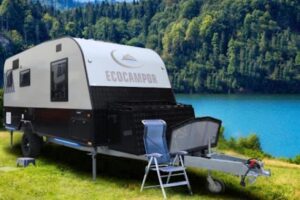Quick Warning
Now, none of this is to say that you should dive headfirst into the next electrical problem that you encounter.
Electricity is powerful and dangerous. If you are not absolutely sure you know what you are looking at, and how to repair or maintain it, do nothing. Any doubt or gap in knowledge should be taken as a sign to contact your local RV technician and set up a diagnostics appointment.
One more time for the people in the back:
WARNING: Electricity is powerful, dangerous, and will kill or harm if not respected or handled properly. Untrained RV owners should not attempt to repair or diagnose complex electrical problems. In the article, I will describe a few minor problems that most people should be able to fix. Any issues outside of what I describe here today should be addressed by a trained professional.
***This article is for informational purposes only. It is not a replacement for professional advice and should not be considered so***
RV Power Types
Campers typically house electrical systems that operate using two different types of power: alternating current power and direct current power.
Alternating current (AC) power is used for the appliances in an RV that consume a lot of power. These are appliances like microwaves, air conditioners, and water heaters. AC circuits are designed to handle 120-volt AC power, which is the same type of power supplied to most houses in the United States.
Direct current (DC) power is used for all of the low-voltage equipment and devices in a camper. Overhead lights, ventilation fans, USB charge ports, and any number of other small devices can be run using DC power. Both automobiles and RVs utilize 12-volt DC power. This allows many handy pieces of gear originally designed for use in automobiles to also be used by RVers.
The 3 RV Power Systems
There is a common misconception that RVs have only two power systems: the 120V AC system, and the 12V DC system. In addition to these two systems, RVs have a second 12V DC circuit that provides power to the brake lights, headlights, power windows, and locks. Essentially any electronics that are used for driving the RV will operate off of this circuit.
There are multiple names for this 12V circuit floating around amongst RVers and technicians. You may hear this circuit referred to as the “chassis 12V system” or the “automotive DC system”.
Adventure trailers and large fifth-wheels also have this additional 12V system. In trailers, the 12V power for this system is supplied through a 7-pin connector plug located at the tongue of the trailer. The plug will connect to another 7-pin plug coming off of the hitch of a tow vehicle. Any vehicle with a towing hitch should have a 7-pin connector wired into the DC system.
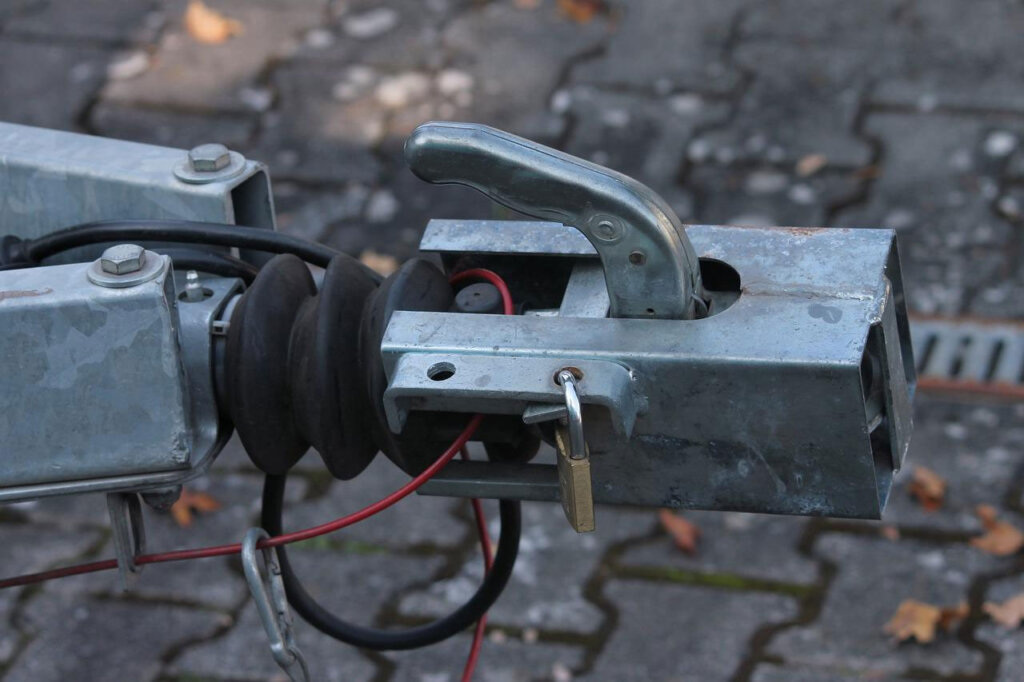
So, to recap the three types of power systems found in campers, we have a:
- 120V AC circuit for powering large appliances with substantial energy consumption
- 12V DC (house) circuit for powering small, low-voltage devices in the living quarters of the RV
- 12V DC (chassis) circuit for powering low-voltage electronics that are used while driving or towing the RV.
Volts, Watts, and Amps
At this point, I’ve used the term “volt” several times while talking about the types of power flowing through an RV. But what exactly is a volt? Before we go much further I want to define a few common electrical terms that RV owners may hear while discussing electrical systems with an electrician or fellow RVer.
Volts
Voltage refers to the force that pushes electricity through wires. It is often compared to water pressure in pipes. In plumbing systems, higher pressure results in more water flowing through the pipes at a faster rate. In an electrical system, higher voltage results in more electricity flowing through the wires at a faster rate.
Amps
Amps are used to measure electrical current. In the example above, if volts refer to the pressure in a plumbing system, amps refer to the water itself.
Wires and fuses have a rating that indicates how many amps they can handle. Push too many amps through a wire, and that wire will get hot, potentially melting or combusting. Just like how a weak pipe might burst from a too-heavy flow of water.
Watts
Watts are the total amount of power that electricity has. If that one is hard to wrap your head around, that’s OK. Let’s keep going with our plumbing analogy to figure this one out.

Determining how much water is being provided by a flow of water from a pipe can be done by looking at the rate of flow (volts), and the amount of water in that flow (amps). By multiplying those two factors together, the total amount of water is provided at any one given moment is revealed.
So in electricity, multiplying voltage by amperage tells us wattage.
Electrical Components in an RV
Let’s indulge in a quick overview of the main components of an RV electrical system.
- DC Fuse block: A DC fuse block is a power-distribution module that acts to distribute 12V DC power coming from the battery bank to the various 12-volt circuits. Each circuit in the fuse block has a replaceable fuse that provides the wiring and the appliance with overcurrent protection.
- Breaker box: An RV’s breaker box is very similar to a DC fuse block, but for the 120V AC system. Power is sent from an inverter to the breaker box, where it is then distributed to the various 120V circuits. Instead of fuses, breaker boxes have switches that detect and protect against power surges. When an overcurrent event occurs, the switch on that circuit flips, breaking continuity and protecting the wires and appliance from damage.
- Battery bank: The RV’s batteries. Whether they are lithium iron phosphate or lead-acid varieties, all RV batteries store and distribute 12V DC power. RV batteries can be wired “in series”, allowing multiple batteries to act as one congruous unit and upping the overall power of the electrical system. While some smaller campers and trailers only have one house battery, most have multiple batteries wired in series, leading to the term “battery bank”.
- Inverter: Arguably one of the most important components in a system, the RV inverter converts the 12V DC power supplied by the batteries into 120V AC power. Without an inverter, RVs would only be able to utilize 120V appliances while directly hooked up to a 120V power supply. Inverters allow 120V circuits to be utilized while off-grid.
- Converter: Similar to the inverter but with an opposite job. Converters convert 120V AC power into 12V DC power so it can be safely stored in the battery bank. RV park and residential power hookups supply 120-volt AC power. Converters convert this energy, allowing the batteries to recharge from it. Because of this, converters are sometimes referred to as “battery chargers”.
- Shore power plug: Located on the exterior of the rig, the shore power plug is where power hookups are connected in order to supply power to an electrical system and/or charge an RV’s batteries. Shore power connections are typically wired directly to the RV inverter, allowing power to flow directly to the breaker box in its original 120V AC form, or be converted to 12V DC for storage.
Common RV Electrical Problems
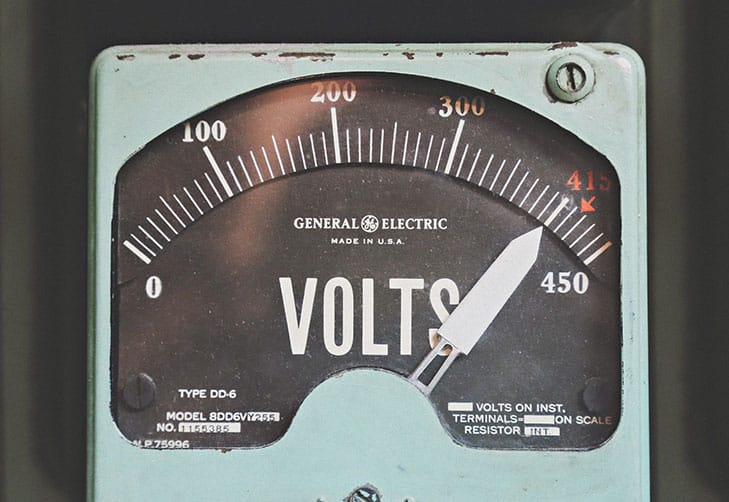
So let’s say you’ve driven your camper several miles into the backcountry for a two-night stay away from civilization. A little rest and relaxation before another work week start on Monday.
You’ve gone on a calming evening stroll by the river and look forward to getting back to camp and tossing some leftover enchiladas in the camper’s microwave for a quick dinner. But when you get back to camp and try to start the microwave, nothing happens. The fridge is cold and the lights are on so you know the system has power, but the microwave is showing no signs of life. What could the problem be?
Tripped Breaker
To check for a tripped breaker, find the breaker box on the RV’s control panel. One of the circuits will be labeled “microwave”. If the circuit has been tripped you will be able to physically see the switch in the “off” position. If this is the case, flip the switch back to “on” and try the microwave again. In best case scenario the microwave fires right up and soon you are digging into some hot enchiladas.
Breakers can trip unpredictably from power surges caused by the grid. They will also trip if two appliances on the same circuit are being used simultaneously, causing too much power to flow through the system. If you consistently trip breakers, try limiting how many appliances on that circuit are used at one time.
GFCI Tripped
A GFCI outlet is a specialty outlet used in areas in a living space that might be prone to electrical shorts. They are most commonly used in high-moisture areas such as kitchens, bathrooms, and plumbing cabinets. GFCI outlets trip, in the same way, a breaker trips, immediately cutting power to the outlet when an electrical short is sensed.
In this situation, if the microwave is plugged into a GFCI it may just be a matter of resetting the GFCI. If this is the case though, it may be an indicator that the microwave is faulty and causing electrical shorts. If you reset the GFCI and the microwave still doesn’t work, it may mean that the microwave is bust.
Damaged Wiring
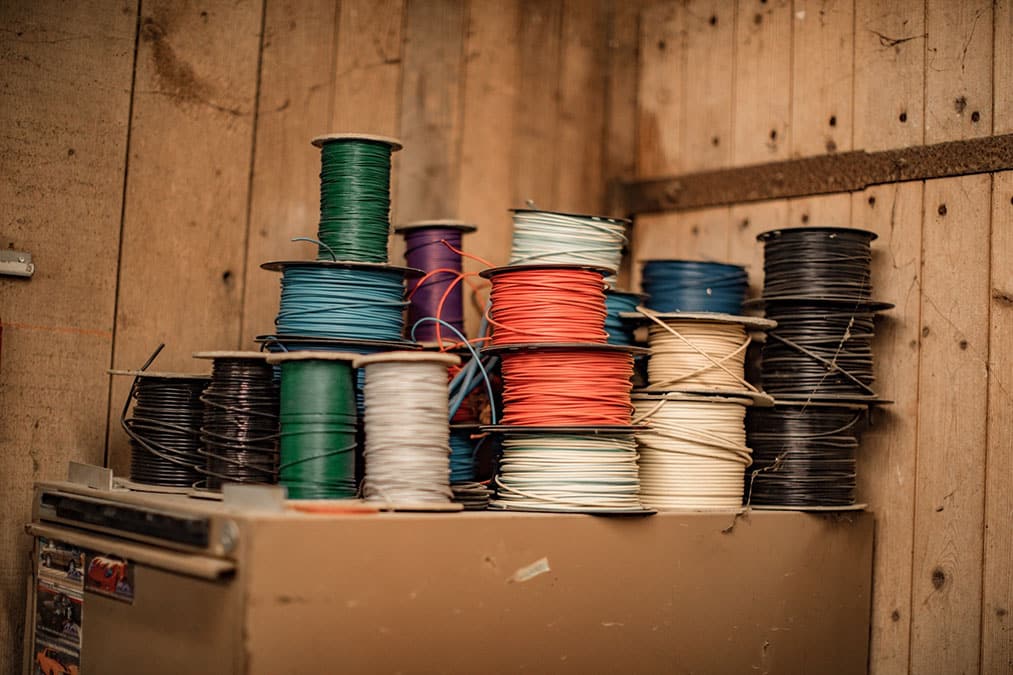
Ok, so you’ve checked the breaker and the GFCI, you know the system has power, but the microwave still won’t work. Luckily when you try another outlet, the microwave starts up and you can eat a hot meal. But what’s up with that outlet? Why didn’t it work?
It could be damaged wiring.
Wiring in an RV can end up damaged due to a number of forces. Old age, pests, and normal wear n’ tear can all result in damage to the protective casing on wires. If the newly exposed metal wire makes contact with another piece of metal, especially the chassis, it will almost certainly result in an electrical short, causing the circuit to stop working properly.
Unfortunately, this is a common problem that is more difficult to diagnose than most. If you find no discernable reason for an outlet to not be working properly, the best course of action will be to make a diagnostics appointment with a professional RV technician. They will have the tools and know-how to safely diagnose what is causing that particular circuit to short out.
Blown Fuse
Unfortunately, my elegant enchilada analogy won’t cover all of the most common RV electrical problems so let’s step away from that for a moment.
Fuses are designed to “blow” when too much power flows through them. An overcurrent event melts or burns part of the fuse, resulting in a fuse that electrical current can longer flow through.
When a healthy fuse is in place, it fills a gap in the continuity of an electrical circuit, and current can flow through the circuit undisturbed. When the fuse is gone or has blown, the gap in continuity prevents current from continuing on through the circuit. This protects the wiring and appliance from being subjected to continuous overcurrent, which can result in damage and fires.
If appliances on the 12V DC circuit aren’t working, give your fuses a thorough inspection.
Drained Batteries
Just like a phone or laptop, sometimes the batteries in an RV simply die. If you find your RV appliances showing no signs of life, try giving the rig time to recharge via solar or shore power. After a couple of hours, disconnect power sources and see if your electronics work. If they do, then it was probably just a case of a drained battery.
If you’ve charged up and the rig is still dead, you might have bigger problems. This could be indicative of a failing power converter, or issues with the batteries themselves. If you encounter this, it’s time to take it to a professional.
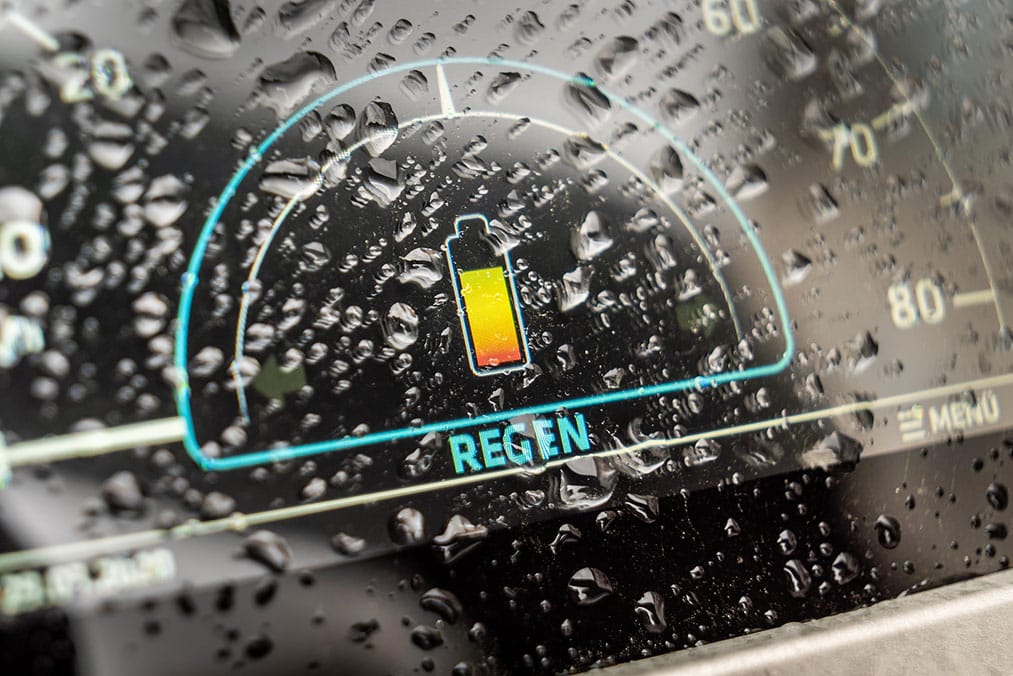
Frequently Asked Questions
See what other RVer are asking about.
Do the numbers on fuses matter?
Yes! The numbers on fuses are their amperage rating. Replacing a blown fuse with a differently rated fuse can result in extreme damage to your electronics, your rig, or even yourself. Always make sure to replace blown fuses with a fuse of the exact same rating.
What would make outlets in an RV stop working?
Outlets will stop working if the breaker for that circuit has tripped, if the inverter has an issue, or if the battery bank has drained entirely. GFCI outlets will stop working when they encounter an electrical short.
Should I wear eye protection when diagnosing electrical problems?
Yes, please always wear safety glasses and protective rubber gloves while diagnosing electrical problems. Sparks can fly and hands can slip. Always be ready for the worst by wearing personal protective equipment whenever you perform RV maintenance.
Many of the electrical problems outlined above can be diagnosed and fixed by the average person. The more often you attempt to diagnose and understand your electrical system, the more familiar you will become with it.
With that said, know when to call it quits. There is no shame in reaching out to your local RV technician for help. Please do not risk your own health in sanity when an RV tech would be more than happy to assist with any problems you encounter.
Happy camping!


